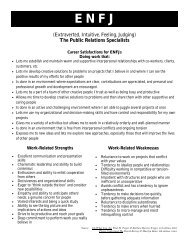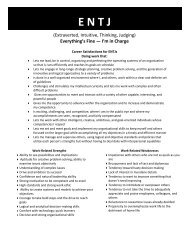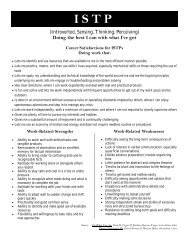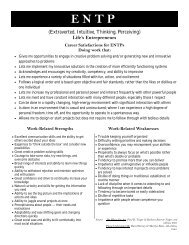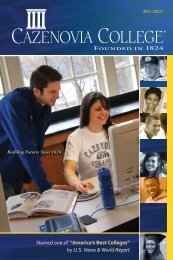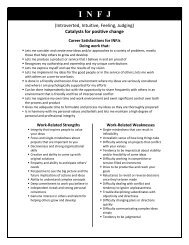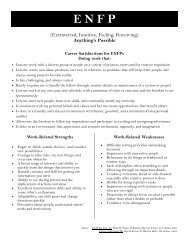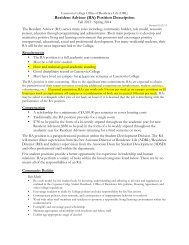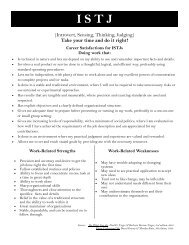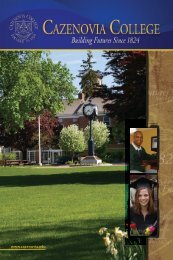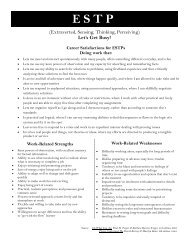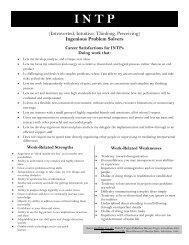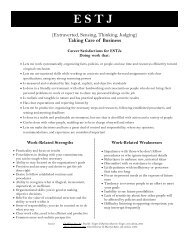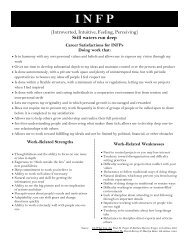of
2013-14 Academic Catalog - Cazenovia College
2013-14 Academic Catalog - Cazenovia College
- No tags were found...
Create successful ePaper yourself
Turn your PDF publications into a flip-book with our unique Google optimized e-Paper software.
Accounting<br />
AC 110 Fundamentals <strong>of</strong> Accounting<br />
3 credits (CS)<br />
The basic principles <strong>of</strong> accounting are studied. Topics include<br />
the accounting equation, balance sheet, income statement,<br />
ledger, journal, voucher, and payroll systems. This course is<br />
designed for the non-business major who wishes to study<br />
accounting for the operation <strong>of</strong> a small business or<br />
partnership. May not be taken after AC 331. (Offered<br />
annually)<br />
AC 171 General Ledger Computer Programs 1 credit<br />
(CS)<br />
This course introduces the student to the computerized<br />
general ledger used in most businesses. In addition to training<br />
the students on hardware, the course provides practical<br />
experience and application with components to the general<br />
ledger such as accounts, journal entries, posting, referencing<br />
and formatting. Students will gain hands-on experience.<br />
AC 172 Accounts Receivable Computer Programs 1<br />
credit (CS)<br />
This course introduces the student to computerized accounts<br />
receivable module used by most businesses. The course<br />
provides practical experience and application to accounts<br />
receivable management such as account control, account set<br />
up, account use, and account schedule.<br />
AC 173 Payroll<br />
1 credit (CS)<br />
This course introduces the student to computerized systems<br />
<strong>of</strong> payroll. Students will gain actual experience with rate<br />
calculations, payroll distribution, payroll forms, tax tables, and<br />
various other governmental-related reporting forms.<br />
AC 331 Financial Accounting<br />
3 credits (CS)<br />
The fundamental principles <strong>of</strong> accounting are presented at an<br />
introductory level. Topics include an introduction to<br />
accounting, accounting systems, income measurement, the<br />
accounting cycle, accounting for retail operations, cash and<br />
short-term investments, inventory, payroll methods, and<br />
depreciation.<br />
AC 332 Managerial Accounting<br />
3 credits (CS)<br />
This course finishes the study <strong>of</strong> financial accounting with the<br />
study <strong>of</strong> corporate dividends and cash flow statements. The<br />
focus then shifts to the study <strong>of</strong> managerial accounting.<br />
Topics covered include job and process costing, budgeting<br />
and master budgets and planning as well as flexible budgets<br />
and standard costs. Prerequisite: AC 331 Financial<br />
Accounting passed with a grade <strong>of</strong> "C" or better<br />
AC 411 Accounting Theory I<br />
3 credits (CS)<br />
An overview <strong>of</strong> accounting and its theoretical foundation,<br />
assets, liabilities, equity, and special problems in income<br />
determination and financial reporting. The student is<br />
expected to perform efficiently under Financial Accounting<br />
Standards Board guidelines, prepare financial statements, and<br />
render opinions leading to managerial decisions. Prerequisites:<br />
AC 331 Financial Accounting, AC 332 Managerial<br />
Accounting; Recommended: AC 431 Intermediate<br />
Accounting<br />
AC 412 Accounting Theory II<br />
3 credits (CS)<br />
The fundamentals <strong>of</strong> double-entry accounting for the sole<br />
proprietorship form <strong>of</strong> business enterprise are taught. The<br />
basic accounting cycle is covered, as well as the operation <strong>of</strong><br />
various journals and ledgers, resulting in the creation <strong>of</strong><br />
supporting schedules and financial statements required in the<br />
normal operation <strong>of</strong> a modern multicultural business<br />
environment. Emphasis is placed on sales, purchases, special<br />
journals, income statements, and analysis <strong>of</strong> merchandising.<br />
Accounting functions specifically for a retail enterprise are<br />
emphasized. Prerequisites: AC 331 Financial Accounting, AC<br />
332 Managerial Accounting, and AC 411 Accounting Theory<br />
I<br />
AC 431 Intermediate Accounting I<br />
3 credits (CS)<br />
This course entails an examination <strong>of</strong> the theories and<br />
concepts <strong>of</strong> accounting and the generally accepted principles<br />
as they apply to liabilities and equity. Topics covered include<br />
liabilities (current, long-term and contingent); factors<br />
affecting contributed capital and retained earnings; and<br />
financial reporting according to FASB principles. Emphasis is<br />
placed on the <strong>of</strong>ficial accounting reporting methods as<br />
presented in AICPA guidelines. (Offered on a rotating basis)<br />
Prerequisites: AC 331 Financial Accounting, and AC 332<br />
Managerial Accounting<br />
AC 432 Intermediate Accounting II<br />
3 credits (CS)<br />
The concepts presented in this course include equity<br />
financing, investments in debt and equity securities, leases,<br />
employee compensation, accounting changes and analysis <strong>of</strong><br />
financial statements. An emphasis is placed on managerial<br />
decision-making and portfolio analysis. (Offered on a rotating<br />
basis) Prerequisites: AC 431 Intermediate Accounting I<br />
AC 435 Tax Accounting<br />
3 credits (CS)<br />
A study <strong>of</strong> the tax structure <strong>of</strong> government and businesses,<br />
concepts, practices and reporting. Special emphasis is placed<br />
on business-related tax procedures. Topics include advantages<br />
and disadvantages <strong>of</strong> the present tax systems. The student<br />
becomes familiar with tax terminology and various federal,<br />
state, and business tax forms. Problems and methods related<br />
to individual taxes are also covered. Current issues with a<br />
historical background prepare the student for the total tax<br />
perspective. (Offered on a rotating basis) Prerequisites: AC<br />
331 Financial Accounting, and AC 332 Managerial<br />
Accounting<br />
Academic Catalog | Cazenovia College | www.cazenovia.edu 139



